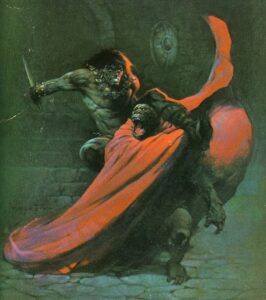Recently I ran across the term Overpowered Main Character.
I said to myself, “What the heck is that?” After reading the definition, I said “Oh, that’s what heroic characters are.”
If you’re like me, as writers we’re told our characters have to have flaws and then overcome them in the story. That we have to write the Hero’s Journey every time we put pen to paper, or fingers to keyboard, or voice to recorder.
As readers, we are bombarded with sales pitches telling us the author writes about flawed characters. Reviewers pan books where the characters aren’t flawed and therefore not “realistic”.
Now, to be honest, I’ve never cared overly much for the Hero’s Journey. Nor do I care overly much to read about flawed people. I want to read about people. Period. They may or may not have any flaws. Their warts don’t matter much to me. I want to see people.
I read for entertainment. I read to get out of my world and to take a trip to a different world. Usually one that doesn’t much resemble my own.
That world may be the fantastic world of Conan the Barbarian. Or it may be the ordinary settings of Jack Reacher’s world. Or it may be the hidden world of Pellucidar. Or the jungles of Tarzan. Or the California of Philip Marlowe.
But wherever the book takes me, I generally don’t want to read about flawed characters. Realistic characters — yes. Flawed ones — no.
Let’s face it, people are a bunch of odd ducks. A combination of good and bad, normal and perverse, ordinary and exciting. It is what makes us interesting. Variety, after all, is the spice of life.
When I read fiction, I want to escape me and my world and vicariously become the main character in a different world. I want to be the main character. So why the heck do I want him flawed? I don’t. Because if he is — then he’s no different than I am.
And I don’t want to read about myself. If I did, I’d write in my journal.
I don’t want to read about me. I want to vicariously identify with a larger than life main character. James Bond. Indiana Jones. Captain Kirk.
The Hobbit is often cited as a perfect example of the Hero’s Journey. Perhaps it is. I don’t care. What draws me to the book are the characters. I’ve re-read The Hobbit five times and I don’t usually re-read books, but the characters are so intriguing I just love to take a trip to that world every now and again.
The characters in The Hobbit are lifelike, but they transcend anyone I know. I like Bilbo at the beginning of the book and I like him at the end of the book. I don’t really give a fig about the journey and his change from Baggins to Took.
I revel in the the mini-dramas between and amongst the characters. That’s what makes the story.
I want characters who are realistic, yet larger than life. Who have a commanding presence I can respect — warts and all.
My character Pierce Mostyn is not an exciting one. Even with his strawberry blond hair, nothing is visually distinctive about him and he is easily forgotten, which is probably an advantage for a paranormal G-man.
Yet, the one thing he has that I don’t is calmness under fire. He is unflappable. Something I wish I was. He can also get himself and his team out of any monster-created jam that he finds himself in. Something I probably couldn’t do.
Justinia Wright is larger than life. Rather over-the-top even. She is “normal” on steroids, coupled with a whole heck of a lot of eccentric. Harry, on the other hand, is all sorts of normal. He’s the counterpoint to all of Tina’s eccentricities. Add to that, their sibling bickering and you have characters like us, but unlike us in that they get rid of all the bad guys.
Bill Arthur, the narrator of The Rocheport Saga, is my wannabe character. If I could be someone else, I’d want to be Bill Arthur.
He isn’t physically overpowered. But he is overpowered when it comes to imagination, leadership, and strategic planning. He’s also unflappable under fire.
The Overpowered Main Character is the person we all dream of becoming. Jack Reacher crushes bullies. Who amongst us hasn’t at sometime been bullied? Jack Reacher is our vengeance outlet.
Recently, I’ve been reading Michael-Scott Earle’s Tamer and Star Justice series. Both feature an overpowered main character. And in reading these books I can’t help but think of characters such as Tarzan, Superman, and Conan. There’s something viscerally appealing about a character who will always be triumphant. Probably because we want to be triumphant.
Boring, I hear some of you say. No, not really. The excitement is in seeing how our hero beats the odds. And the odds are always against him. Just like we feel they are so very often against us.
Fiction is entertainment. I don’t want my books to give me the same world I wake up to every morning. To me, that’s boring.
The Overpowered Main Character: he’s who we really want to be.
Comments are always welcome. And until next time, happy reading!
 CW Hawes is a playwright, award-winning poet, and a fictioneer, with a bestselling novel. He’s also an armchair philosopher, political theorist, social commentator, and traveler. He loves a good cup of tea and agrees that everything’s better with pizza.
CW Hawes is a playwright, award-winning poet, and a fictioneer, with a bestselling novel. He’s also an armchair philosopher, political theorist, social commentator, and traveler. He loves a good cup of tea and agrees that everything’s better with pizza.
If you enjoyed this post, please consider buying me a cup of tea. Thanks! PayPal.me/CWHawes
Conan image is from Lancer edition of the Conan stories.
Share This!